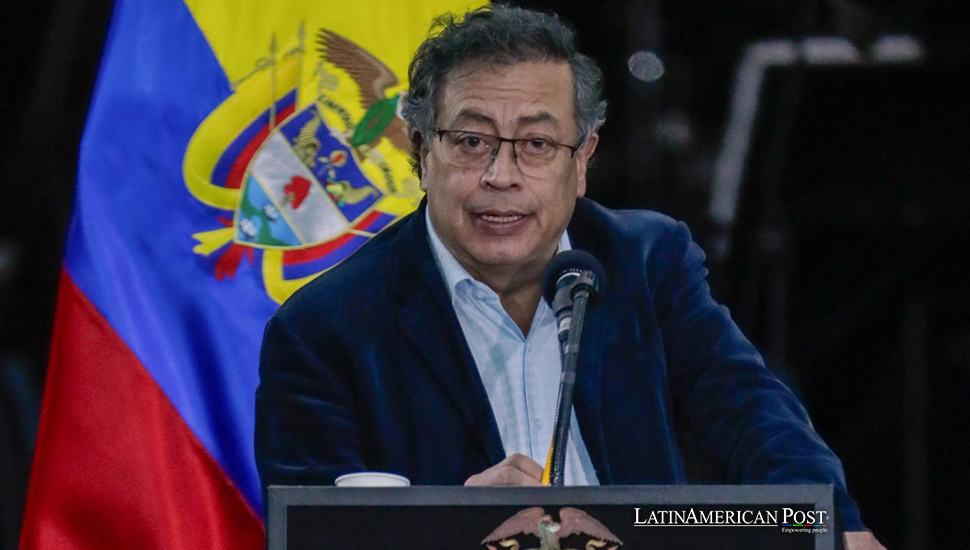Colombia Deserves Leadership and Solutions, Not Petro’s Public Feuds

Colombian President Gustavo Petro’s recent declaration of a clash with Argentine President Javier Milei at the G20 Summit raises questions about leadership. Petro risks reducing critical discourse to an unproductive spectacle by highlighting disputes rather than solutions.
Leadership Is About Solutions, Not Gossip
When Colombian President Gustavo Petro stood before an official audience to recount his verbal clash with Argentina’s Javier Milei at the G20 Summit, it was hard not to wonder: Where were the solutions? Instead of focusing on meaningful outcomes or actionable policies, Petro centered his narrative around a disagreement—one allegedly suppressed by the Argentine delegation.
The argument reportedly started because of a disagreement on beliefs. Petro supported working together as a key to human progress, while Milei focused on individual efforts and competition. Petro described this debate as a conflict between old and new ideas, presenting himself as the protector of worldwide unity.
Leadership involves solving problems, not just arguing or showcasing moral victories. By highlighting this disagreement, Petro may distract from both countries’ essential issues. His words might excite supporters, but they could also change leadership into a show of complaints instead of providing answers.
The Danger of Politicized Drama
These arguments, which often escalate into public drama, risk damaging the diplomatic relationship between the two countries. Petro often argues with Milei. Sometimes, they disagree about beliefs, and sometimes, they just insult each other. People notice their frequent clashes. Earlier this year, Petro responded to Milei’s provocations. He expelled Argentine diplomats in anger. However, Petro changed his mind after a few weeks. These arguments probably do not help either country. Very little progress has been seen.
While publicizing disagreements might energize political bases, it risks trivializing the responsibilities of governance. Leaders are elected to address real problems—economic inequality, climate change, public safety—not to air personal grievances or ideological clashes on the global stage.
The G20 Summit was a chance for Petro to show Colombia’s priorities. He could have used this platform to promote specific policies and foster collaboration, thereby demonstrating effective leadership. Instead, he chose to focus on a disagreement with Milei, which detracted attention from the important issues that could have been addressed.
A Missed Opportunity for Unity
The themes Petro claimed to champion at the G20—cooperation and collective progress—are critical in today’s interconnected world. However, he started his speech by focusing on his disagreements with Milei, which weakened the message of working together that he wanted to send.
Leaders need to overcome personal and political fights. Picture a different story if Petro had come back from the G20 with clear outcomes꞉: a shared plan for climate strength, a regional trade deal, or a renewed promise for dialogue in the Americas. Instead, the focus was on a disagreement hidden by claims of video suppression, which distracted from real progress.
A Call for Maturity in Leadership
Petro’s way of doing things shows a common trend in today’s politics. Leaders often care more about looks than actual work. This childish focus on fighting over solutions weakens the severe nature of political roles. It turns significant issues into gossip.
Colombia and Argentina have real problems that need attention. Petro saw the G20 as a chance to discuss money issues, local unrest, or how world policies affect Latin America. Instead, the story turned into a fight, creating more pointless drama.
True leaders go above such silliness. Leaders find answers, work together, and produce results. The goal is real help for the people. Highlighting disagreements may win the headlines, but it does little to solve problems.
Also read : France’s “Mexicanized” Drug War Ignores Its Own Consumption Crisis
Petro risks alienating those who look to him for guidance by focusing on disagreements rather than actionable ideas. The people of Colombia don’t need a leader who announces fights—they need one who announces solutions.





